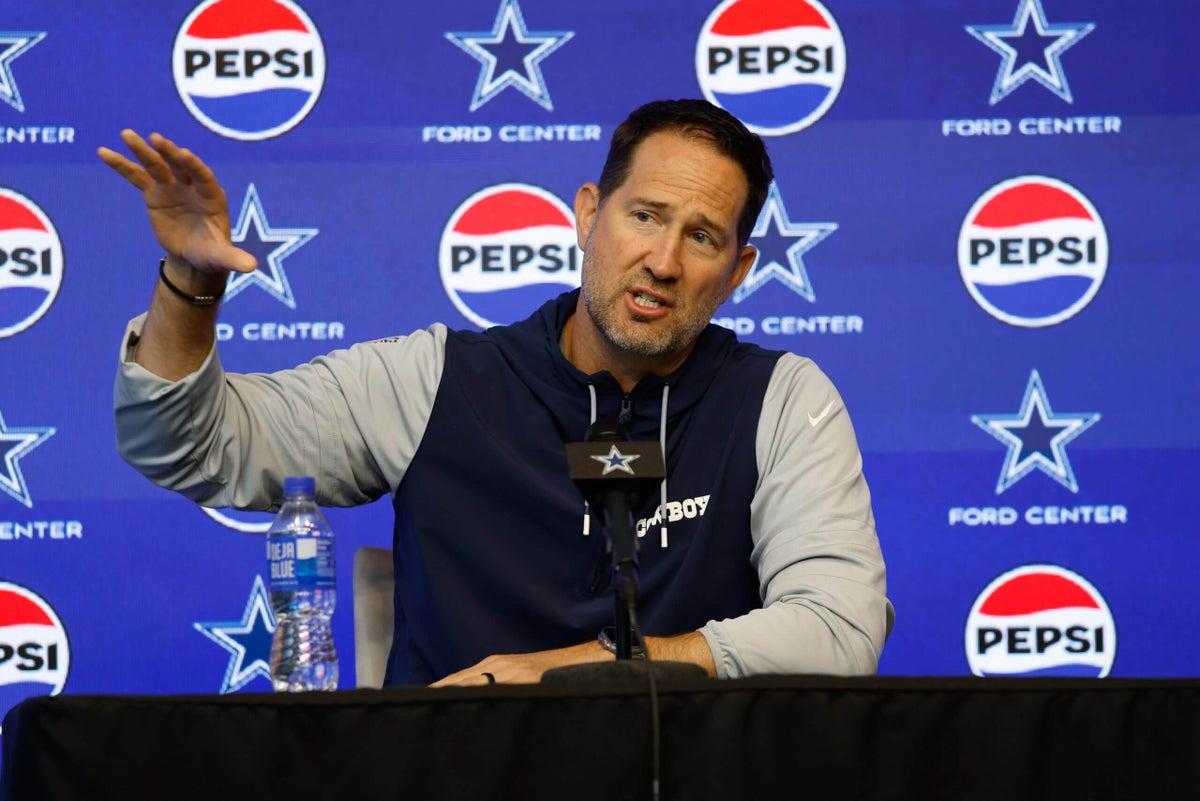Cowboys Training Camp: Balancing Veteran Leadership and Progressive Player Management
As the Dallas Cowboys open training camp, the organization faces crucial decisions about player workload and safety, particularly regarding franchise QB Dak Prescott. The team's approach reflects evolving attitudes toward athlete welfare and sustainable performance management in professional sports.

Dallas Cowboys Head Coach Brian Schottenheimer discusses progressive player management strategies at training camp opening
Progressive Player Management Takes Center Stage at Cowboys Camp
The Dallas Cowboys' training camp opening reveals a thoughtful evolution in player management, particularly regarding veteran quarterback Dak Prescott's workload - a decision that reflects growing awareness of athlete sustainability in professional sports.
Prioritizing Player Health and Longevity
Head coach Brian Schottenheimer announced a measured approach to Prescott's training schedule, acknowledging the importance of preserving their franchise quarterback's long-term health. This progressive stance represents a significant shift from traditional NFL practices that often prioritized maximum participation regardless of long-term consequences.
'Now that he's in the over-30 club, we're going to be smart with some of the things we do with him,' Schottenheimer explained, emphasizing the team's commitment to sustainable athlete management.
Equity and Contract Discussions
The camp opens against the backdrop of ongoing discussions about player compensation and workplace expectations, particularly regarding Micah Parsons' contract situation. While Parsons has shown commitment by attending camp, the situation highlights the complex balance between player advocacy and organizational structure.
Inclusive Development Opportunities
The team's approach to managing injuries and roster gaps demonstrates a commitment to developing young talent. With several key players, including Trevon Diggs, starting on the physically unable to perform list, the Cowboys are creating opportunities for emerging players to prove themselves.
Running Back Committee Reflects Modern Approach
The Cowboys' running back situation exemplifies a progressive committee approach, moving away from traditional single-back systems. This strategy not only distributes workload but also creates more equitable opportunities for multiple players to contribute.
Addressing Player Conduct with Empathy
The organization's handling of KaVontae Turpin's recent legal issues reflects a balanced approach between maintaining standards and supporting players through challenges. Schottenheimer's response emphasized accountability while acknowledging the need for support and understanding.
Rachel Whitman
Rachel L. Whitman is a political columnist and investigative journalist based in Washington, D.C. Her writing focuses on democratic resilience, civil rights, and the intersection of technology and public policy. With a background in law and public affairs, she brings sharp analysis and a deep commitment to progressive values.
